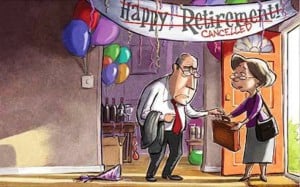 Payday loans. The holidays are over and it’s time to pay the piper. Your mail box is full of credit card bills and you don’t know where the money is going to come from, so you think about payday loans.
Payday loans. The holidays are over and it’s time to pay the piper. Your mail box is full of credit card bills and you don’t know where the money is going to come from, so you think about payday loans.
You’ve got the TV on and low and behold, what could be playing but a commercial for a company offering payday loans promising to be the cure for what ails you. Just make a call, drop into a payday loan store or go online and like magic, your money problems will be over with payday loans. Not so fast! That’s not exactly how it works. And, it will not solve your money problems; it will create new ones. Instead of owing the credit card companies money, you will owe the payday loan companies money. Payday loan companies don’t lend money because they are charitable. They lend money at exorbitant rates because they know that you can’t borrow anywhere else and you will get caught in the cycle of endless payday loans.
Here is a typical example of how payday loan companies do business. The Cash Store charges annual interest of 59.9% to new borrowers. As a result the provinces have been going after payday loan companies to protect the consumer. The December 2013 amendment by Ontario is the second time that year The Cash Store and their payday loans faced regulatory scrutiny from the province, according to Moody’s. In February, the Ontario Ministry of Consumer Services was preparing to revoke the company’s payday loans licence when it substituted a new one-year line of credit product to continue lending. Payday loans are most often taken out by low-income people willing to pay high interest rates to avoid falling behind on their bills or to cover emergency expenses, according to studies commissioned by the Canadian government and the Canadian Payday Loan Association.
If you have to go to a payday loan company, you have serious debt issues and you need professional help. There is nothing to be ashamed of. You’re like many people who have been living paycheque to paycheque until one day you either lose the paycheque or it just isn’t enough to pay the bills. Contact Ira Smith Trustee & Receiver Inc. today. We will evaluate your situation and discuss the options with you which may include bankruptcy alternatives such as credit counselling, debt consolidation and consumer proposals in addition to bankruptcy. Starting Over, Starting Now you can live a debt free life.






